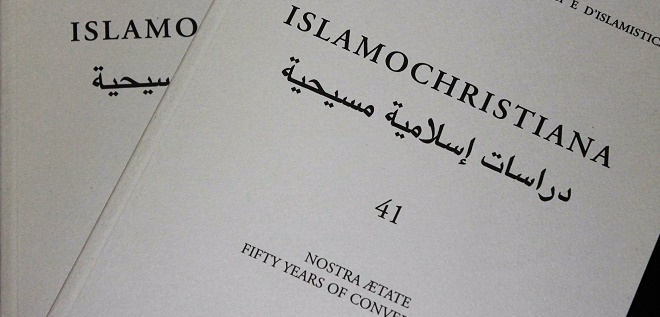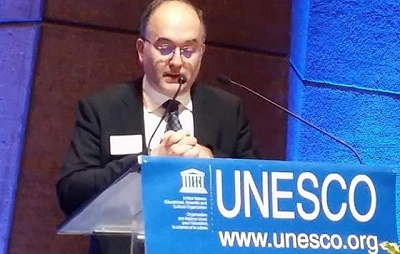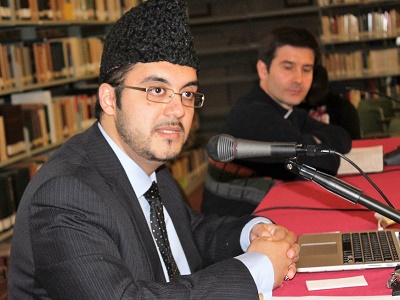Islamochristiana 41
Nostra Ætate. Fifty Years of Conversation.The title of this volume of Islamochristiana cannot be any other. Fifty years have passed since the Second Vatican Council of the Catholic Church promulgated the Declaration Nostra Aetate, the brief document which marked a milestone in the relations between Catholics and the faithful of other forms of religious expression, and in particular as regards Muslims (n.3) and Jews (n.4). Several conferences and celebrations have taken place to commemorate the event. For its part, Islamochristiana has already dedicated volume 32 to the fortieth anniversary, and is now pleased to celebrate this Jubilee.
Mons. Michael L. Fitzgerald updates the theme he had taken up in Islamochristiana 32: the changes that have occurred in the last decade, both within the Church and within the Muslim world demonstrate that, beyond what appears at first sight, dialogue is both continuing and developing. The brief article by Michel Lagarde underscores that what was stated in Nostra Aetate still needs to mature and to penetrate more deeply the basic structures, both of the Catholic Church and of the Muslim institutions: otherwise it becomes useless to talk about changes in inter–religious relations. Paul Heck and Ignazio De Francesco start with specific elements of the Declaration, and develop them: the first draws a bold and interesting relationship between the Spirit, the šekinah and the sakīna, suggesting possible avenues of convergence of a common basic concept. The second reflects on the figure and the teaching of Jesus in the Muslim sources, revealing particular characteristics not common in Christian thought. The section dedicated to dialogue in history has two articles. Diego Sarrió Cucarella analyses the anti–Christian polemic of Šihāb al–Dīn al–Qarāfī on the legitimacy of fighting for the cause of God, a theme that has consequences even today. Chiara Pellegrino examines the birth, the development, the presence and the influence, within Muslim circles, of ‘scientific’ exegesis of the Qur’ān. The section dedicated to contemporary dialogue comprises three articles: Ida Zilio–Grandi illustrates the presence and sense of raḥma in the Qur’ān and in Muslim tradition, above all as a mode of relationship between people (in the family and between Christians and Muslims). Jean–Marie Ploux presents an intense and profound study about the theological foundations of Muslim–Christian dialogue in the socio–religious situation of our time. Stressing its usefulness and specificity, Hanan Ablahad shows the functionality of the teaching of Arabic within the program of studies of PISAI. Finally, for the section dedicated to the meeting of Christians and Muslims in specific situations, Nicolas Lhernould describes the role and the presence of the Catholic Church in contemporary Tunisia.






















